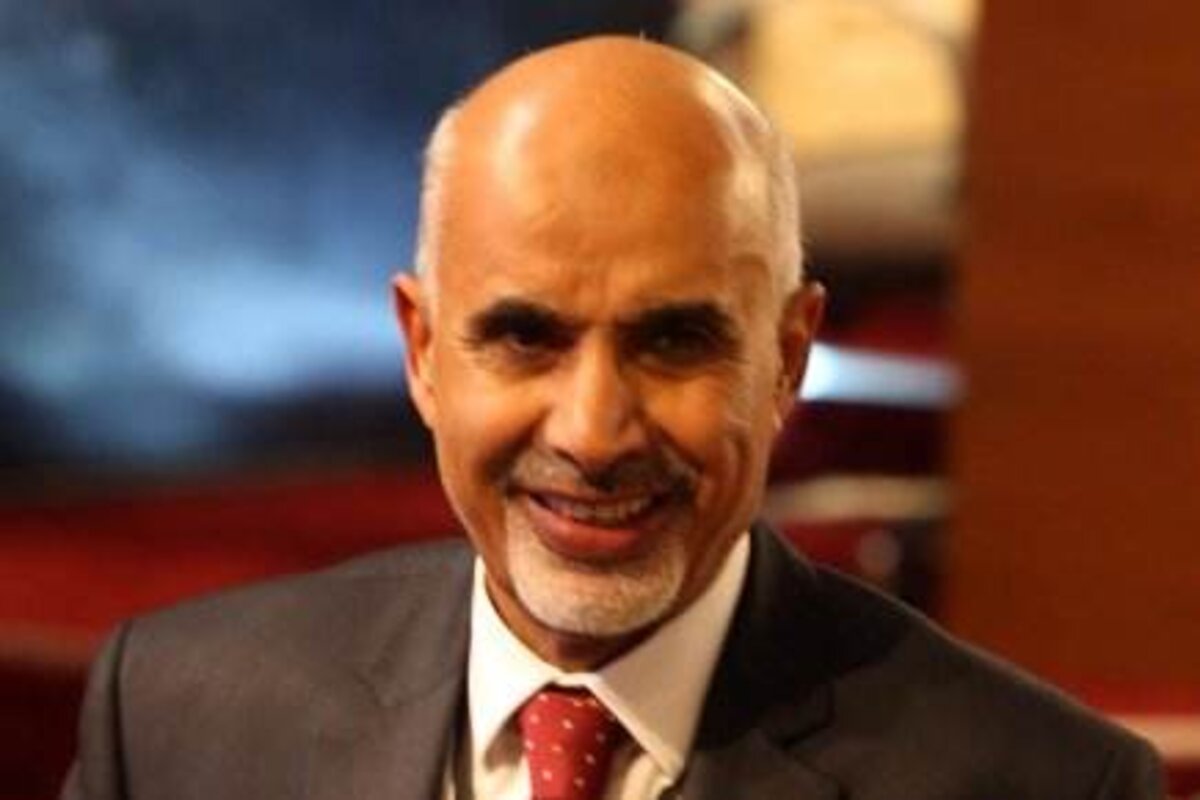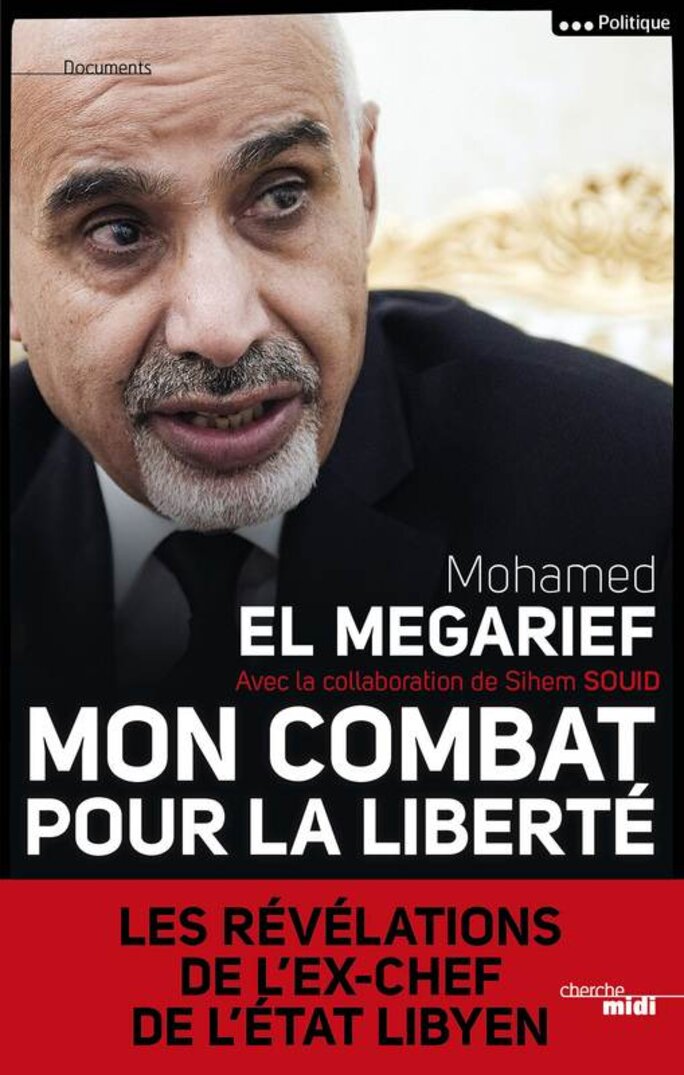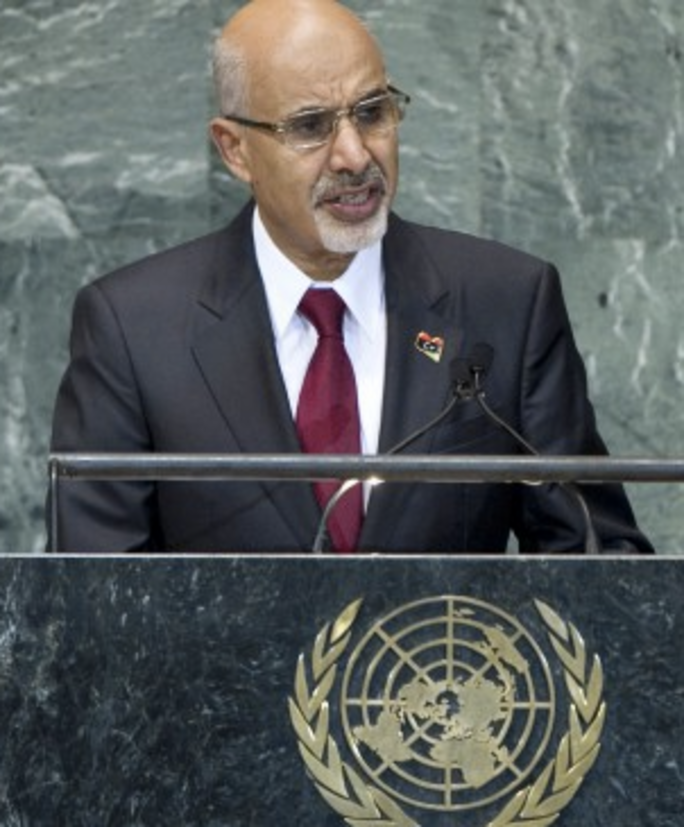For the first time a leading figure in post-Gaddafi Libya has confirmed that the dictator’s regime paid millions of euros to fund the 2007 French presidential election campaign of Nicolas Sarkozy. Mohamed Al Magariaf, a long-standing opponent of Muammar Gaddafi who became de facto president of Libya from August 2012 to May 2013, states that 50 million euros were paid to finance the Sarkozy campaign. Al Magariaf, who spent 30 years in exile, many of them in the United States, also reveals for the first time that Libya continued to fund Sarkozy until 2009.
'It's not a question of blaming Nicolas Sarkozy, his commitment to the liberation of Libya was exemplary and the Libyan people are grateful for it. But why lie or deny? Yes, Gaddafi financed the Nicolas Sarkozy electoral campaign and continued to finance it still after 2007,” writes Al Magariaf.

The comments appear in the original manuscript of his book Mon combat pour la liberté ('My fight for freedom') published in January by Cherche Midi.
However, all sections relating to Libyan funding of Nicolas Sarkozy were removed before publication. “The signed and stamped letter from Mohamed Al Magariaf [editor's note, about the book's content] doesn't cover us in a legal action,” the chief executive of Cherche Midi, Philippe Héraclès, said last September before taking the decision to remove the most explosive pages from the title.
Mediapart has now obtained a copy of the original text in French and Arabic, including the five pages that refer to Libyan funding in France. Al Magariaf bases his information on the archives of the new Libyan state following Gaddafi's downfall and death in 2011. It confirms the sum given in the Libyan document published by Mediapart in April 2012. “Fifty million euros were thus paid during the electoral campaign,” writes Al Magariaf.
But he also reveals that the payments continued after 2007 and that “a final payment” was made in 2009. Al Magariaf says that a member of Libyan intelligence chief Abdullah Senussi's family helped arrange for the money to reach its destination in France. The former head of state's assertions come after the confirmation by a number of prominent former Gaddafi officials, most recently Tunisian journalist Tahaer Dahec, of the existence of the illegal payments.
The original manuscript contains sensitive information which is likely to prove useful to the judicial investigation opened in Paris in April 2013 into Libyan funding of the 2007 campaign. “The only electoral campaign I can speak about is that of Nicolas Sarkozy in 2007,” begins Al Magariaf, who became president of Libya's General National Congress in August 2012. “Many French and foreign media organisations have tried to recreate the scenario, to reassemble all the protagonists...the truth is scattered in various investigations. I am going to say what I know.”

Enlargement : Illustration 2

“During the campaign,” writes Al Magariaf, “[Gaddafi's chief of staff] Bashir Saleh met people close to Nicolas Sarkozy. Gaddafi wanted to 'help his friend', meaning he wanted to buy a good reputation in France. Circumstances had been such that his stock was always low with [President François] Mitterrand and [President Jacques] Chirac. A new era was dawning and the Mad One [editor's note, the author’s nickname for Gaddafi] was not going to let the opportunity slip. Saleh suggested that Libya help with Nicolas Sarkozy's election. Propaganda would have been counter-productive. It's with money that one is effective. Fifty million [euros] were therefore paid during the election campaign. That seems enormous for a country where the campaign accounts are limited and scrutinised. But the Mad One had lots of money.”
The operation had to be completely confidential but, according to Al Magariaf, there was still a major risk of a leak simply because of Gaddafi's nature. “The two leaders' henchmen did the 'dirty work' secretly. The meetings were planned and organised in the greatest secrecy,” he writes.
“Few people, on either side, knew about it. In the end...There was the basis of a tacit agreement between the two parties. But to believe Gaddafi is, if not mad, then at least evidence of great naivety. Gaddafi boasted about it with his guests. He was funding a respectable man. He wanted all the world to know...but Nicolas Sarkozy should have expected that. Gaddafi liked to show off and Sarkozy did not sufficiently assess his character before trusting him.”
The arrangement seems to have been finalised in 2006, a few months after Sarkozy's first visit to Tripoli at the start of October 2005. “In confidence Claude Guéant [editor’s note, Sarkozy's chief of staff at the ministry of the interior] revealed his mentor’s ambition to Saleh who obviously spoke about it with his boss,” writes Al Magariaf. “With the presidential election quickly approaching, Gaddafi offered Sarkozy financial help. No sum was privately negotiated beforehand. It's now 2006. Gaddafi succeeded in convincing an ambitious man determined to win this major election that the quality of a campaign depended on the sums that you were ready to invest in it. Which is doubtless true...”
Below is the Arab text of the original chapter relating to the funding of Nicolas Sarkozy's campaign.
'The money should be paid back'

According to Al Magariaf's original manuscript the funding mechanism put in place, using money from the Libyan African Portfolio sovereign wealth investment fund, led to the involvement of another key figure in the regime, intelligence chief Abdullah Senussi. “At the end of 2006 Abdullah Senussi, head of the Libyan secret services, took part in meetings about the funding with Gaddafi and Saleh. He put forward the solution of offshore accounts,” writes the author. According to Tahaer Dahec's account last week, the decisive negotiations were held at the Corinthia Hotel in Tripoli in October 2006 in the presence of Bashir Saleh and Abdullah Senussi.
In the original version Al Magariaf also says that once the idea of paying the money in full in cash had been discounted, Abdullah Senussi arranged for a member of his family living in Paris to help in the transfer of the funds. The author says that the money was sent via an account that was not linked to any known figure. “Anyone close to Sarkozy would have been recognised. No needless risk was going to be taken. As I have already said, the first payment was 50 million euros,” he writes.
Mohamed Al Magariaf wrotes that he “does not know” for what purpose the money was used. But he says that he is “certain” that Sarkozy did not use it for “personal ends”. He adds: “Other payments were made after the campaign. There are numerous suppositions about the amounts. They were very large. To my knowledge the last payment dates to 2009. After Nicolas Sarkozy's victory Gaddafi made it clear to the freshly-elected president that the exclusive intermediary was Bashir Saleh. Bashir Saleh knew everything and spoke French perfectly.” The former arms dealer Ziad Takieddine, who helped introduce Nicolas Sarkozy to the Libyan regime, was not directly involved in these payments, writes Al Magariaf. Gaddafi was not a trusting person and “liked to deal with the same people.”
The original manuscript also deals with the official denials made by Nicolas Sarkozy about the funding claims. “The news was revealed by Gaddafi before his death then confirmed by [his son] Saif al-Islam Gaddafi [editor's note, currently in detention in Libya] who will answer for his actions before the courts. It's true that with an assertion of this import coming from the mouth of a bloody monster and his Machiavellian son, no one wants to believe it. It seems to me that this was the president's line of defence. And it was intelligent.”
Even in the published version of the book there are allusions to payments, for example on page 165 where the author states that “the Libyan financing” talked about in the French press is “real”. Al Magariaf also calls for all funds sent abroad to be paid back. “In the end I'd like everything that was taken from the Libyan people to be returned to the Libyan people, “ he writes. “The money that was able to fund the campaigns of Western leaders was taken from the Libyan workers, it was stolen from beneath Libya's soil. These stories are behind us (at least in Libya) but...to begin again on a solid footing everything must be returned. The French press act as if they have discovered the Libyan payments. They are real and will never take place again. At least, I hope not,” states Mohamed Al Magariaf.
Also in the published edition Mohamed Al Magariaf regrets the “theft” of Libyan money for the aim of political corruption. On pages 74 and 75 he writes: “Gaddafi considered that all men could be bought and sold. You just had to discuss the price. So he gave Bashir Saleh the task of evaluating various individuals. Saleh kept the accounts. He had 6.5 billion dollars, sometimes part of it placed in containers. His mission involved financing organisations, small groups and electoral campaigns. Officially it involved the [Libyan African Portfolio] but no one was allowed to see the way in which the money was squandered. Because it wasn't spent or invested. The money stolen from the Libyan people went up in smoke.”
Meanwhile on page 65 there is a more subtle reference to the lack of sincerity in Franco-Libyan relations at the time that Sarkozy was elected. “For me May 2007 represents the apogee of what is worst in terms of cynical politics.”
-------------------------------------------------------------
English version by Michael Streeter


